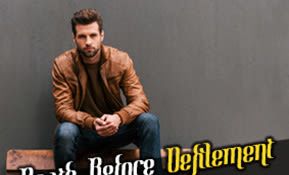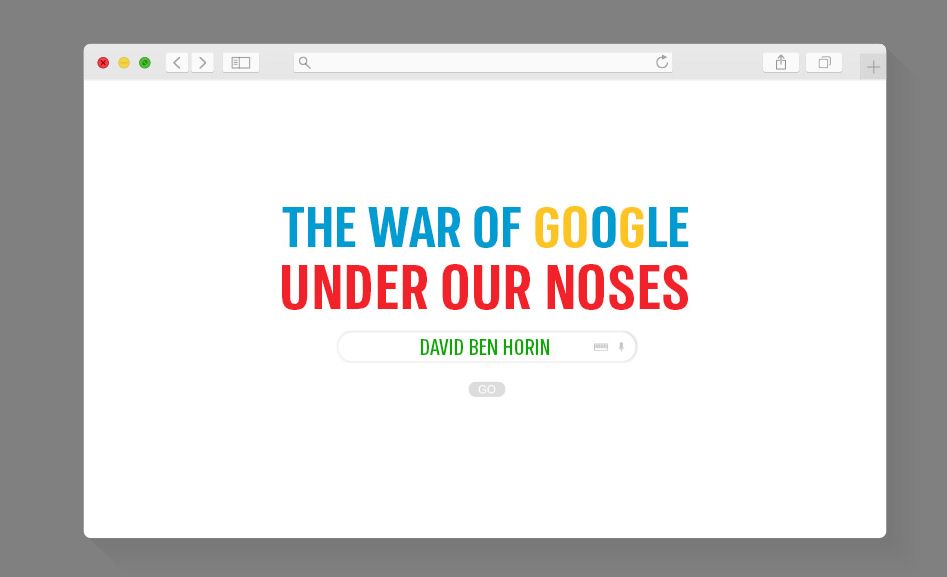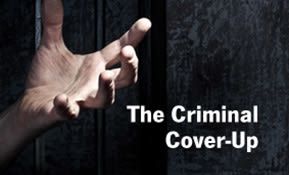
Love, Hollywood Style
When I was writing TV scripts, the producers weren’t shy about reminding me that sex sells. One producer handed me plot ideas based only on sexual situations...

Love, if you believe Hollywood, is usually about envy-evoking passion and pheromone-charged bliss. It’s where attractive boy meets attractive girl and when sparks start flying from across the room.
All the movies and all the TV shows that depict this brand of “love” have become more than just our points of cultural reference. For many of us, they also became our frame of reference.
We’re conditioned to think that satisfying lust is really what love is — or should be.
It’s easy to forget that the movies and TV shows and pop songs our culture reveres are only commodities belonging to an industry that, like any industry, is designed to turn the biggest profit. And in the entertainment industry, as everyone knows, sex sells.
When I was writing TV scripts, the producers I worked with weren’t shy about reminding me that sex sells.  One producer handed me plot ideas based entirely on sexual situations. Another TV producer commanded me to add a sex scene in one of my scripts (which I refused to do).
One producer handed me plot ideas based entirely on sexual situations. Another TV producer commanded me to add a sex scene in one of my scripts (which I refused to do).
Yet what gave me the closest view of the Hollywood lust factory wasn’t an off-camera position; it was a shot at being on camera.
In the 1980s and 1990s, one of the biggest hit game shows on American television was Love Connection. Though it was a game show, it was also part talk show and part forerunner of today’s reality television. Here’s how it worked. A guest, usually a never-married twenty-something, would sit with host Chuck Woolery before a live audience, talking about how tough it is looking for love in the post-modern age. Then the show would air brief videotaped interviews of three candidates for the guest to date. The guest would then announce which of the three candidates he or she had chosen to go out with, and that candidate would come onstage. The couple would then discuss their date with Chuck Woolery, allowing a television audience of millions to live vicariously through their wild exploits.
I hadn’t seen the show. If I had, I wouldn’t have auditioned for it.
At the time, I was working at a Los Angeles production company (and I was a couple of years away from becoming a Torah observant Jew). One of my co-workers’ husband happened to be a producer for Love Connection, and he asked his wife to beg all her single male co-workers to audition for the show. Love Connection faced a severe shortage of single males (though to me there seemed to be plenty of us running around Los Angeles).
My co-worker told me that Love Connection just needed men to audition. All I had to do was show up and answer some questions. She assured me I wouldn’t be chosen, and if I were chosen it would be as one of the video candidates and definitely not the guy sitting next to Chuck Woolery before a live audience.
I told her I would do her the favor and audition.
The audition resembled a group therapy session of young singles. We sat in a circle and were told to briefly describe ourselves. I remembered Rule One in game show auditions: never say you’re nervous. Just then, as the woman next to me was asked to describe herself, she confessed she was nervous. She was the first one weeded out. As for me, since I didn’t really want to be on the show anyway, I was relaxed. I felt I had nothing to lose.
A day or two later, a Love Connection producer called me and said they wanted me to come in for a video interview. They liked my initial audition.
Because I had signed a waiver, I was now trapped. I wasn’t allowed to bow out. As I was now getting a little nervous, I did something I should have done before; I watched the show. And when I did, I was mortified. I felt it was an exercise in public humiliation.
When I walked into Love Connection’s production company office for my video interview, my only goal was to sabotage my chances of actually getting on the show. They sat me in a chair, aimed a video camera at me and asked me more questions. This time I was vulgar and crass, saying things I was sure would never be allowed on television. I was convinced they would think I was too unpredictable for prime time and would instantly weed me out.
I was wrong.
They wanted me to be Love Connection’s main guest to sit on stage with Chuck Woolery.
I was then shown the videotaped interviews of three young women. The producer working with me strongly encouraged me to choose the first one she showed me because she felt the chances were high that something physical would quickly develop. Instead, I chose the second contestant. I had hoped being contrary would help me get kicked off the show. It didn’t. I was then made to call Contestant Number Two. In her video, she said she was looking for a man with a body in the shape of a “T”, which I guess meant broad shoulders. When I called her, the first thing she asked me was what I looked like. I said, “The only time my body’s in the shape of a “T” is when my arms are outstretched.”
I went out with Contestant Number Two for lunch at a vegetarian restaurant in Topanga Canyon. The next day, the producer called me and asked, “So did you do the dirty deed?” This was my last-ditch effort to get off the show. Being vulgar had made me more desirable for TV, so I thought now I would try the opposite approach. I would be moral. I told the producer that the topic of physical intimacy is a private thing not to be discussed, especially on national television. “And besides,” I added, “my grandmother would be watching.”
That worked. The producer became livid and promptly booted me from the show.
This experience ripped open the lid of the Hollywood lust factory for me. I saw first-hand how much Hollywood prizes casual sex — and how much it despises a semblance of “personal holiness.”
Today, two decades after Love Connection went off the air, popular culture is even more erotic and decadent. “Love” is constantly sold in the media as lust rather than a life-long marital bond cemented by mutual spiritual commitment. And there seems to be almost no escape from the lewd messages and images we’re inundated with.
Rebbe Nachman of Breslev said more than two hundred years ago that “sexual temptation is the main test in life. It is sent as a challenge to refine us.”
Our generation, it seems, has been subjected to this test more than any other.
It’s hard to imagine another time in history where guarding one’s eyes is more challenging than in our own generation. And even if we really work on guarding our eyes and avoid TV, movies, newspapers and illicit Internet site, we can still get hit with inadvertent images. How then can we combat the fantasies and negative spiritual effects these images cause? How can we elevate ourselves?
One piece of advice among many that Rebbe Nachman gives us in the area of tikun haBrit (personal holiness) is to “cry out to G-d; scream and cry out to Him over and over again, like a woman in labor who cries out from the pain of her contractions (Advice, page 39).”
As long as Hollywood continues pushing the sexual imagery envelope and continues making more lewdness more mainstream, it looks like we’re going to have a lot of screaming to do.







Tell us what you think!
Thank you for your comment!
It will be published after approval by the Editor.